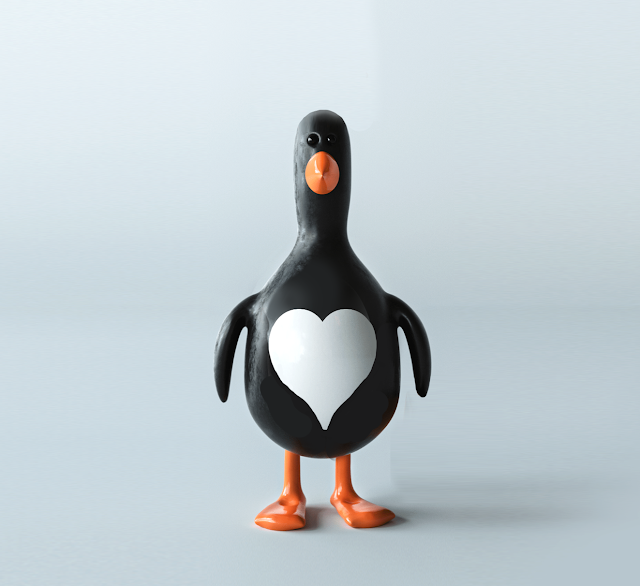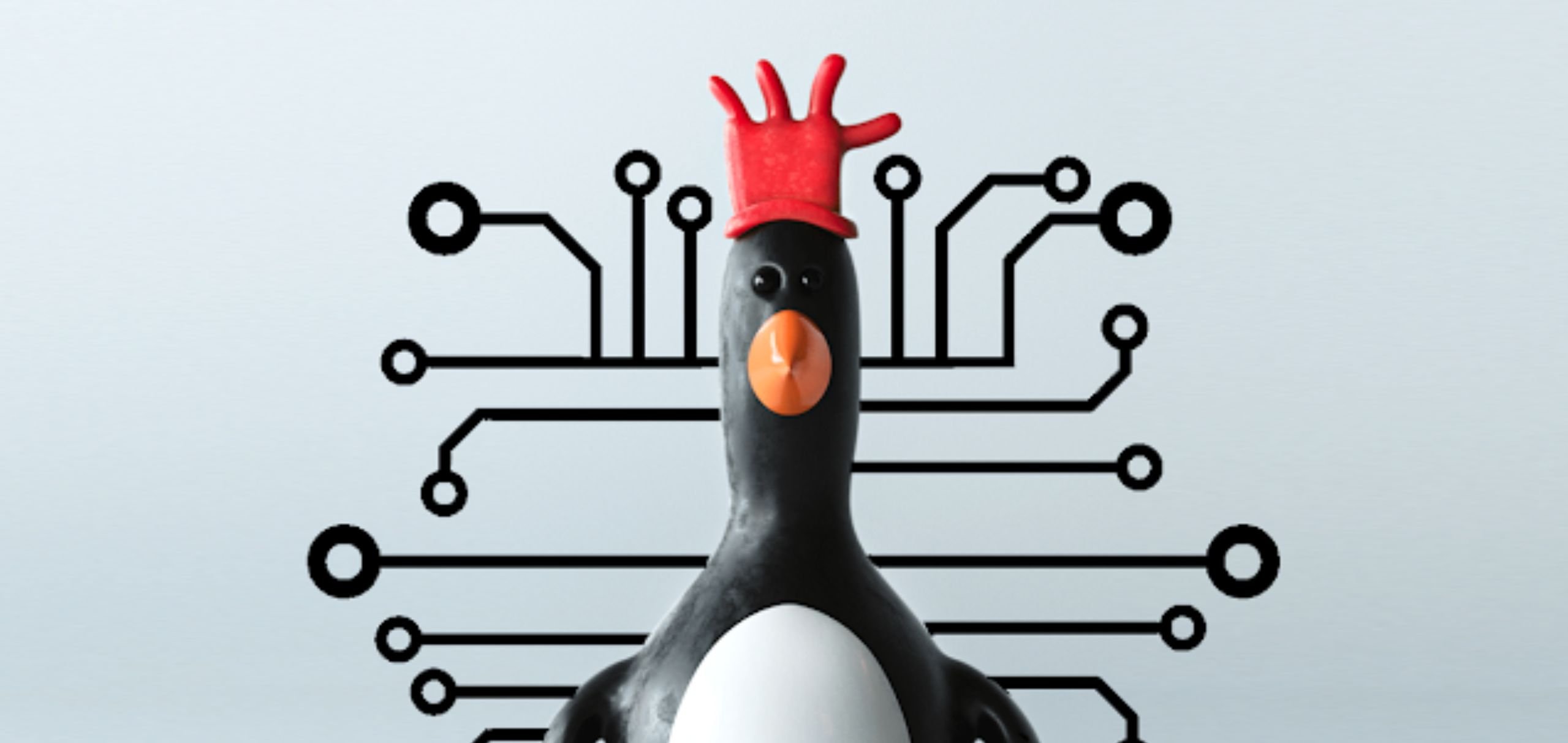3 min read
Honchō Scoops Up Two UK Search Awards!
It’s official, we've added not one, but two shiny trophies to our awards cabinet! We’re over the moon to share that we’ve triumphed at the UK Search...
Where’s all this leading to? I’m no expert, so these are just a few musings.
There are people around who are far more knowledgeable than me, who have already examined this subject in depth, so I’m not going to attempt to do that. But sometimes it’s fun to go down the rabbit hole.
So here we go…
Like that odd-looking penguin from Wallace and Gromit, artificial intelligence has just appeared unassumingly on our doorsteps holding a little suitcase. He blinks at us but his beady eyes are giving nothing away. Personally, I’m feeling a bit suspicious, and I suspect you are too
We see more and more AI entering our daily lives, often working in the background and unnoticed so it’s difficult to measure its impact. Many of us in the creative industry are putting on a positive face, saying it’s great for ideas generation, a tool, a new string to our bow. Who are we kidding? AI will soon have no problem with generating concepts, graphics and ideas that resonate and have meaning, and it will be better than us.
Speak to Garry Kasparov if you have any doubts about that.
Outside of the creative industries it’s busy reading x-rays better than doctors, its sensors can sniff out diseases and communicate them better than dogs. It’s designing skyscrapers – scaring the bejesus out of architects, etc etc etc… There’s not an industry this revolution will not affect irrevocably.
It seems the only thing left to do creatively, in our neck of the woods, will be to have someone sign off the work. Creative directors and stakeholders will make the final decision on the strategy and creative. We just need their signature and the gig’s a wrap.
But what’s so special about signing off a campaign? It’s just intuition at the end of the day. Are we saying AI can’t intuit like people can? It does not have to believe everything it ‘thinks’ or ‘feels’. It just has to make the right decision.
We will soon be able to produce solid, robust, mind-blowing campaigns and they will be made in minutes. Or hundreds of them. What’s the difference? We will test them on people in focus groups. But who needs focus groups when we can model them with the data we have scraped from human behaviour online. We can test ‘artificial’ ideas against artificial (but reliably coherent) digital ‘people’.

And who’s to say a company like, I don’t know, Klaviyo cannot one day put all these tools in a single package? Suddenly an artisan vegan shoe maker in Dundee has at their fingertips, a campaign strategy plus all the creative, designed, written up and produced in six minutes to rival anything Nike could produce at present in six months? With the only difference being, access to a larger advertising and talent/sponsorship spend.
Is it important for us that human minds are behind these things? Does it really matter if a brilliant idea comes from a ‘mind’ that doesn’t know the idea is brilliant?
If it sculpts better than Michelangelo or writes music better than Bach, Bowie or… (I need another ‘b’), will we care?
Bronski Beat.
What happens to the appreciation of the artist? Even if it could hear you, the AI chef that created the most memorable culinary experience you ever had, will not have the mind or the heart to appreciate your compliments. Is our role just to consume? Where’s the fun in that? To whom will we direct our awe?
It might well be that we are destined live in world of consumption without creation. In a world where the history of every product, book, movie and culinary delight can be traced back to a machine, will our experiences be less meaningful?
AI will be the curators, directors and the editors of our lives. The tasteless can be tasteful. The talentless can have talent. And the ugly will be gorgeous. Where do we play our part or do we somehow evaporate out of the equation? Will we just become conduits? Vessels for the ideas of our virtual helpers?
Let’s say every job that can be done by AI will be done by AI. What’s left? What’s our role? Since the dust will never settle on this technology, maybe the question we should ask is, will the net result of all this augmentation and assistance from our AI partners bring us happiness?

In an ideal world, we might all benefit from this technology, so much so that we have time to philosophise at our leisure, eat grapes while we contemplate our belly buttons, and compose symphonies for fun. (Because of course, that’s what people tend to do when their spare time is maximised). Or will we continue in our current direction?…
Either way there’s nothing to say that any of this will make us less busy, less stressed, free up more time or make us more happy. We are at a profound societal crossroads and it looks like there’s an opportunity right now to choose our path.
Since we don’t yet know what this little penguin has in his suitcase, shouldn’t we be carefully defining what we mean by ‘happiness’, and start building it into the code of first generation artificial intelligence as a desired outcome?
I can’t answer that, but ironically, AI most likely will.
Thanks for listening peeps,
About the author
Kevin Russell is a London-based designer/creative director, living and working in Hackney. He loves to help businesses solve problems. He doesn’t own a cat.

3 min read
It’s official, we've added not one, but two shiny trophies to our awards cabinet! We’re over the moon to share that we’ve triumphed at the UK Search...

5 min read
Understand ecommerce attribution models which attribution models can maximise your marketing efforts and ROI.

3 min read
Explore how social commerce is changing the way we shop online, blending social interactions with digital commerce for a seamless buying experience.
